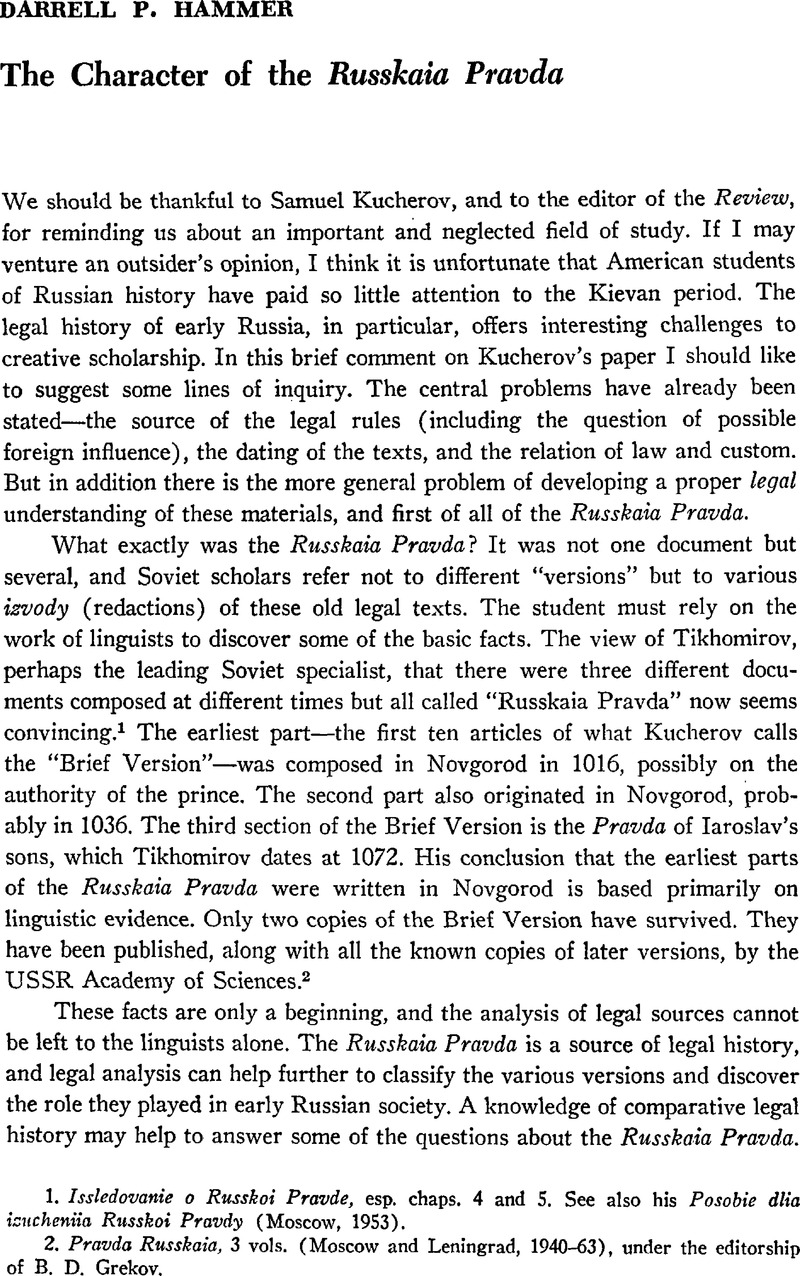Article contents
The Character of the Russkaia Pravda
Published online by Cambridge University Press: 27 January 2017
Abstract

- Type
- Discussion
- Information
- Copyright
- Copyright © Association for Slavic, East European, and Eurasian Studies. 1972
References
1. Issledovanie o Russkoi Pravde, esp. chaps. 4 and 5. See also his Posobie dlia izucheniia Russkoi Pravdy (Moscow, 1953).
2. Pravda Russkaia, 3 vols. (Moscow and Leningrad, 1940-63), under the editorship of B. D. Grekov.
3. Maine, Henry Sumner, Ancient Law, 10th ed. (new printing, Boston, 1963), pp. 355-56.Google Scholar
4. Quoted ibid., p. 358.
5. Pamiatniki russkogo prava, vol. 1 (Moscow, 1952), p. 7.
6. Ibid., p. 34.
7. The Vernadsky translation of the Russkaia Pravda is quite misleading at this point: “And as to anything else, all that laroslav had decreed, his sons confirmed accordingly” (Medieval Russian Laws, p. 35). Actually they promised to judge cases in the way that laroslav had done (iako zhe laroslav sudil). There is no statement in the Russkaia Pravda that laroslav had decreed—that is, legislated—anything.
8. Tikhomirov, M. N., ed., Zakon sudnyi liudem kratkoi redaktsii (Moscow, 1961), esp. p. 23 Google Scholar. The most detailed study of this source is Ganev, Venelin, Zakon soudnyi liudem: Pravno-istoricheski i pravno-analitichni prouchvaniia (Sofia, 1959)Google Scholar.
- 1
- Cited by


